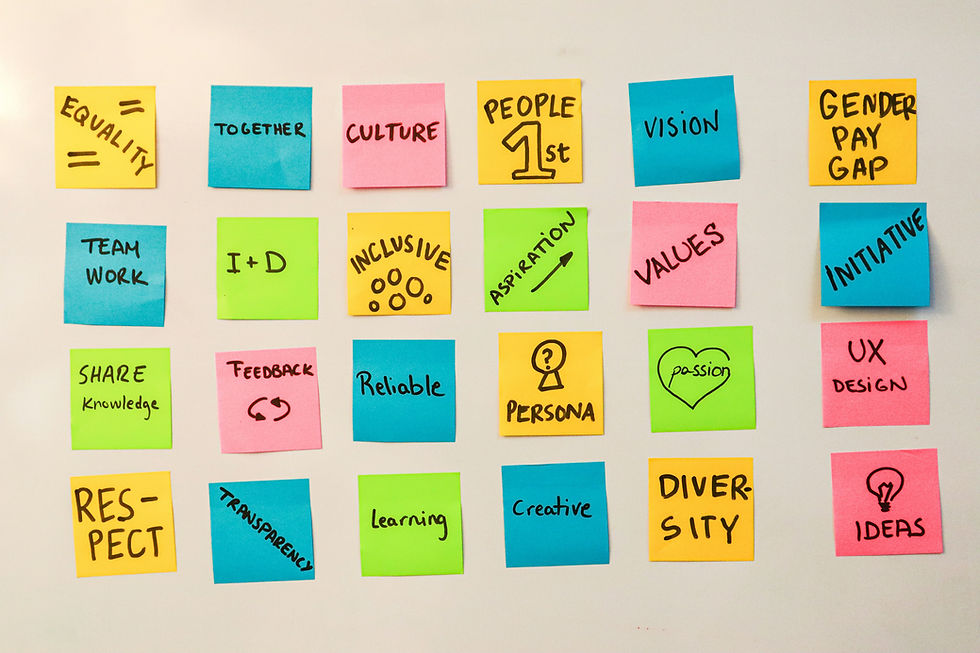Lessons from a five year old
- helenjbutler
- Feb 12, 2016
- 2 min read

It seems that the antics of my five year old hit some kind of nail on the head. So here’s another story from the Christmas break that I will attempt to draw some useful work lessons from...
She’s made an office at the bottom of our stairs (we have an unusual door that separates them from the living room), and she sets up the bottom step with her papers, pens and ‘class registers’ and then closes the door.
At intervals, she opens the door and requests that we join her in her office for ‘a chat’. This can be about anything and everything (e.g. when did you most hurt yourself mummy?/ What are your favourite crisps? Etc. etc.). I feel intrigued but also a little anxious each time as I enter.
On one of those weird days between Christmas and new year, she called me in and with a serious tone, sat me down and said:
‘I want to talk about your behaviour’.
I wasn’t quite sure how to respond to this, but trying not to laugh, I said something like ‘Well, I think I’ve behaved very well today’.
She moved her head slowly to one side and cast me a world-weary look. ‘But what about yesterday mummy? What happened then?’
What the child was getting at was an incident in a coffee shop. She had been quite annoying and was displaying some new attitude that I wasn’t entirely happy with. There had been spillages. Part out of frustration and partly because it seemed a mildly amusing thing to say in front of other adults, I declared that I was going to go home and leave her there if she carried on with the attitude.
Her response was both immediate and extreme. She flung her arms around me, sobbed and questioned how serious I was. It was actually quite moving and I realized that my unthinking comment had zoned in on her biggest fear, and threatened the main thing in life she really relied on in an otherwise crazy world.
So how is this relevant? I have three main thoughts that spring from this:
We all dread being invited into a meeting room for ‘a chat’, so if you’re the one doing the asking, think clearly about what effect you want the conversation to have on the other person before you start, and adjust your approach accordingly.
Powerful questions. Ask them, let people speak, and properly listen to their answers. Good examples include ‘What’s the opportunity here?’ and ‘What do you make of it?’
It’s pretty useful to examine your own behaviour now and again, particularly when it causes an unexpected effect on somebody else. What happened? What could you do differently next time? What can you do today to make good whatever didn’t go as you wanted it to? Have a think about what’s important to the people in your team and how your behaviour and language can support that, whilst still getting your point across.
Wishing you all a happy and successful 2016. And if you’d like to explore coaching this year, just get in touch to set up an informal 'chat' ;)







Comments